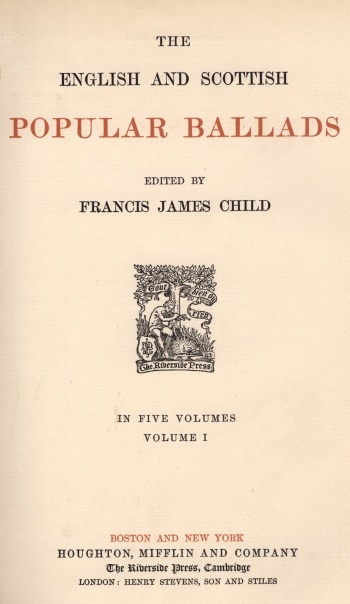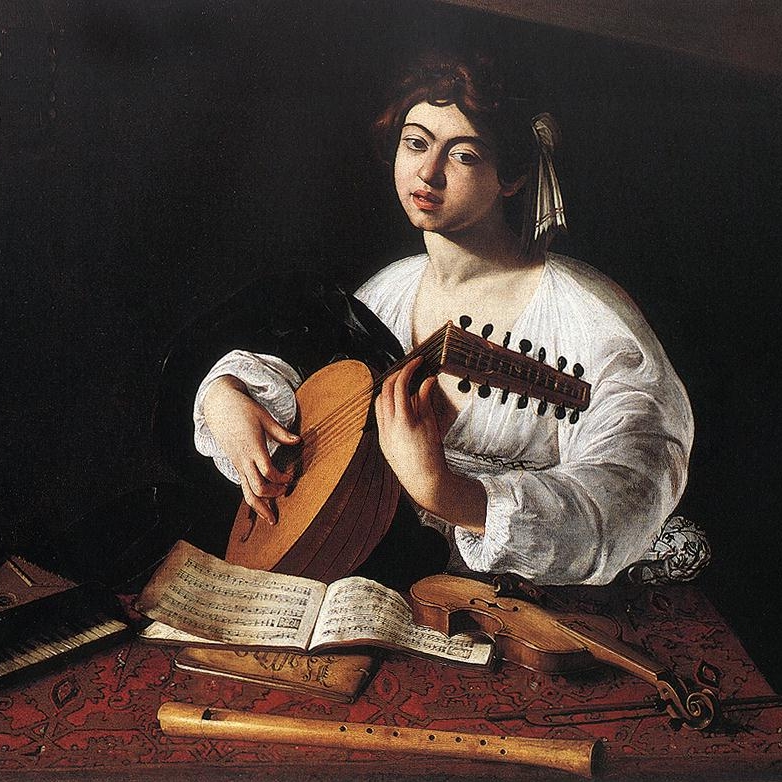In order to preserve the historical integrity of the ballads in this section they are presented in their original dialects, which span a broad range. These ballads have been passed down through the centuries from many different regions of Great Britain before appearing in print. A synopsis of each ballad, in modern American English, is provided to aid in ease of comprehension of the dialects.
There was a lady of the North Country,
And she had lovely daughters three.
There was a knight of noble worth
Which also lived in the North.
The knight, of courage stout and brave,
A wife he did desire to have.
He knocked at the ladie's gate
One evening when it was late.
The eldes sister let him in,
And pin'd the door with a silver pin.
The second sister she made his bed,
And laid soft pillows under his head.
The youngest daughter that same night,
She went to bed to this young knight.
And in the morning, when it was day,
These words unto him she did say:
'Now you have had your will,' quoth she,
'I pray, sir knight, will you marry me?'
The young brave knight to her replyed,
'Thy suit, fair maid, shall not be deny'd.
'If thou canst answer me questions three,
This very day will I marry thee.'
'Kind sir, in love, O then,' quoth she,
'Tell me what your three questions be.'
'O what is longer than the way,
Or what is deeper than the sea?
'Or what is louder than the horn,
Or what is sharper than a thorn?
'Or what is greener than the grass,
Or what is worse then a woman was?'
'O love is longer than the way,
And hell is deeper than the sea.
'And thunder is louder than the horn,
And hunger is sharper than a thorn.
'And poyson is greener than the grass,
And the Devil is worse than woman was.'
When she these questions answered had,
The knight became exceeding glad.
And having truly try'd her wit,
He much commended her for it.
And after, as it is verifi'd,
He made of her his lovely bride.
So now, fair maidens all, adieu,
This song I dedicate to you.
I wish that you may constant prove
Unto the man that you do love.
The ballad Riddles Wisely Expounded appears in Volume I of The English and Scottish Popular Ballads, edited by Francis James Child. These volumes are in the public domain.

The Child Ballads are 305 traditional ballads from England and Scotland, and their American variants, anthologized by Francis James Child during the second half of the 19th century. ... Read more at Wikipedia.

Ballads were particularly characteristic of the popular poetry and song of the British Isles from the later medieval period until the 19th century. ... Read more at Wikipedia.